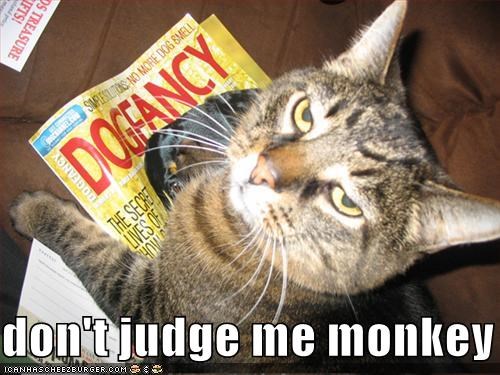Homo- Greek prefix meaning “same”
-phobia from the Greek ‘phobos’, meaning “morbid fear or dread”
(A phobia is defined as) a persistent fear of an object or situation in which the sufferer commits to great lengths in avoiding, typically disproportional to the actual danger posed, often being recognized as irrational. In the event the phobia cannot be avoided entirely, the sufferer will endure the situation or object with marked distress and significant interference in social or occupational activities. Edmund J. Bourne—The Anxiety & Phobia Workbook
So taken literally, to be homophobic should mean to be irrationally and constantly in fear of being the same, to the point of avoiding conformity even when there is no direct threat to your individualism, and if that conformity proves unavoidable, submitting to it would reduce you to a quivering lump of Jell-O.
The word “homophobic” was invented by psychologist and gay activist George Weinberg in the 1960’s. It first appeared in print in 1972, when the American Psychiatric Association still considered homosexuality a mental illness.
An actual phobia, on the other hand, IS a mental illness. It is a form of anxiety disorder that frequently requires psychiatric intervention to overcome.
Now if a person were to freak out being in a room full of homosexuals, perhaps due to a fear that gayness is contagious, and was unable to function for the rest of the day as a result of that trauma, then yes, THAT would be a phobia. Specifically, a form of xenophobia.
I don’t know any Truthseekers who behave that way.
Therefore, I call B.S.
CHRISTIANITY DN= HOMOPHOBIA
Since a Truthseeker’s habit is to push the boundaries of his or her comfort zone, fear has no opportunity to enter the equation.
For God has not given us a spirit of fearfulness, but one of power, love, and sound judgment. (2 Timothy 1:7 HCSB)
Because fearfulness and sound judgment cannot occupy the same mind at the same time, a Truthseeker could not conceivably hope to correct behavior from a position of fear. This makes the suggestion of a Truthseeker being homophobic, even if that were an actual word, a logical impossibility.
The irony here is that the correction that is inspired by God’s love, which drives out fear, is the very thing that the “=” community regards as being homophobic.
Because of this, some may ask, “What gives you the right to go around ‘correcting’ people anyway?” Actually, it isn’t a right so much as it is an obligation:
“Do not hate your brother in your heart. Correct your neighbor boldly when he does something wrong. Then you will not share his guilt.
“Do not try to get even. Do not hold anything against one of your people. Instead, love your neighbor as you love yourself. I am the Lord.
(Leviticus 19: 17-18 NIrV)
Notice that “Do not hate” is followed immediately with “Correct your neighbor boldly.” Hatred and correction, then, are clearly opposites.
Therefore, it follows that the absence of correction where it is needed would indicate the presence of hatred. It does not matter whether one actually FEELS hateful or not; it is the actions, or lack thereof, that make the difference.
For this reason, correcting the behavior a homosexual, or that of any other sinner, is an act of love based upon sound judgment. It is not an act of hate stemming from bigotry and judgmental criticism.
Nevertheless, there is still one more hurdle to overcome. It is the nature of all humans, not just homosexuals, to reject correction.
Our pride makes us become defensive when our belief systems are challenged. Frequently the first method of defense that we use is to deflect the correction back at the corrector. Basically, we sweep our own faults under the rug while attempting to drag our neighbor’s faults out from under the same rug.
When Truthseekers are on the receiving end of this defense mechanism, they usually find it accompanied with another H-word.
(Which we will explore when this series concludes with Part 16–Hypocrisy)

